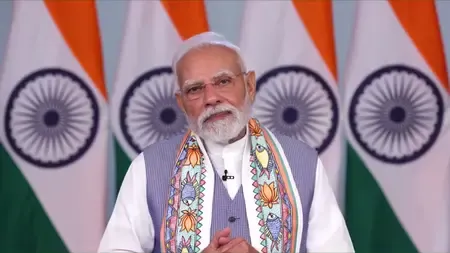Did ADB Approve a $400 Million Loan to Enhance Food Security in the Philippines?

Synopsis
Key Takeaways
- ADB's $400 million loan focuses on food security in the Philippines.
- The project aims to assist 750,000 food-insecure households.
- It supports the Zero Hunger Food Stamp Program.
- The initiative addresses urgent nutrition needs amid climate challenges.
- Previous funding was directed towards improving education in Bangladesh.
Manila, Aug 13 (NationPress) The Asian Development Bank (ADB) announced on Wednesday its approval of a $400 million loan aimed at assisting the Philippines in combatting hunger, food insecurity, and inadequate nutrition amidst increasing climate and disaster threats.
The Reducing Food Insecurity and Undernutrition with Electronic Vouchers Project is set to aid the government in broadening its flagship social assistance program, the Zero Hunger Food Stamp Program, as per the ADB's press release, as reported by Xinhua News Agency.
This initiative will finance the distribution of monthly electronic food vouchers to 750,000 food-insecure households across the nation, according to the bank.
“With nearly half of the Philippine population unable to access a healthy and nutritious diet, food vouchers are crucial for assisting impoverished and vulnerable households in fulfilling their nutritional requirements,” stated Pavit Ramachandran, ADB Deputy Director General for Southeast Asia and current Country Director for the Philippines.
Previously, on August 3, the ADB and the Bangladeshi government finalized a $150 million loan agreement aimed at enhancing technical and vocational education and training (TVET), with the goal of increasing access to decent employment and strengthening the country’s competitiveness in the global market.
The loan agreement was signed by Md Shahriar Kader Siddiky, secretary of Bangladesh's Economic Relations Division, and Hoe Yun Jeong, ADB's country director in Bangladesh.
“Aligned with the country’s economic diversification goals, the program focuses on five primary technology sectors: mechanical, electronics and electrical, information and communication technology, civil, and food and agriculture,” Jeong stated.
According to the ADB, the results-based support for the TVET Teachers for the Future Program will enhance access to modern teacher training, particularly in underserved areas outside Dhaka; improve educators' pedagogical and technical skills in emerging technologies; and strengthen systems for teacher development, management, and reporting.
It indicated that at least 10,000 new and existing TVET teachers will elevate their skills, positively affecting over 250,000 students.
The program will also create a nationwide system for ongoing professional development to ensure the sustained quality and relevance of TVET in Bangladesh.








